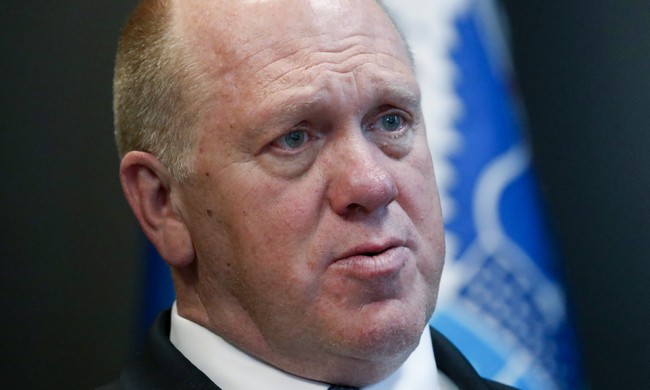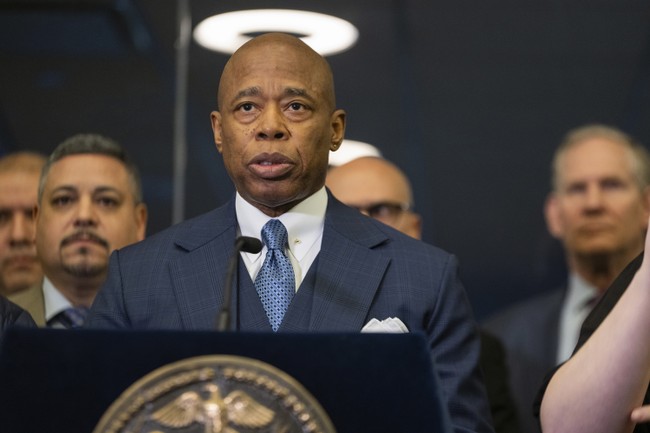Elon Musk's Bold Move: The OpenAI Acquisition Saga
Discover the unfolding drama between Elon Musk and Sam Altman, as Musk attempts to acquire OpenAI with a $97.4 billion bid. With backgrounds of legal battles and technological rivalry, this story is far from simple.
Published February 12, 2025 - 00:02am

Image recovered from bostonglobe.com
In an ambitious move that is stirring the technology world, Elon Musk has offered $97.4 billion to acquire OpenAI, a company he once co-founded but later parted ways with amidst internal disagreements. This bid, however, has not been welcomed by current OpenAI CEO Sam Altman, who publicly rejected the offer, adding fuel to an already complex relationship between the tech giants. The genesis of this tension can be traced back to 2015, when Musk and Altman jointly launched OpenAI as a non-profit with the noble goal of developing artificial intelligence for the universal benefit of humanity.
Fast forward to the present day, and Musk's vision for OpenAI has diverged significantly from current operational goals. Having founded his own AI company, xAI, Musk is now a competitor and critic of OpenAI's trajectory towards profit-driven goals. This ideological clash became evident when Musk departed from OpenAI in 2018, following internal disputes regarding the company's direction. Since then, Musk has frequently expressed dissatisfaction with OpenAI's evolution, suggesting that it has drifted away from its original mission.
In the wake of Musk's bid, Altman responded not only with a flat refusal but also with a witty retort on social media, underscoring the tension between the two. Altman suggested that OpenAI could purchase Musk's social platform for a fraction of the bid. These public exchanges are symptomatic of a deeper conflict that reflects broader challenges in the tech industry, where the balance between innovation, profit, and public good often leads to friction.
The backdrop to this high-stakes drama is OpenAI's own strategic efforts to transition from a non-profit model to a for-profit entity. This transformation is deemed essential by OpenAI's management to secure the necessary capital for advancing their AI models. The proposed restructuring, which includes separating the non-profit board from its lucrative operations, has not been without controversy. Musk has openly challenged this move, perceiving it as a betrayal of the original non-profit mission he had funded.
Moreover, Musk's legal entanglements with OpenAI add another layer to their contentious relationship. His latest lawsuit aims to revert OpenAI to its foundational principles of being open-source and committed to safety. In defense, Altman has resisted Musk's advances, articulating a desire for OpenAI to remain independent of Musk's influence and implying that the billionaire's motivations might be rooted in rivalry and envy rather than strategic synergy.
The OpenAI board, which is yet to formally evaluate Musk's substantial offer, finds itself in the midst of a challenging decision-making process. This is further complicated by Musk's historical ties to the organization and his persistent media commentary about OpenAI's current leadership. This bid highlights the broader theme of how financial power dynamics often clash with organizational ethos in the high-stakes world of technological innovation.
Opinions in the tech community remain split regarding Musk's recent maneuvers. Some analysts see the bid as a strategic, albeit aggressive, attempt to reclaim influence in a company he helped to create but later lost control over. Others conjecture that Musk's actions are designed to destabilize a key competitor in the AI landscape. Regardless, the outcome of this bid has the potential to reshape power structures within the AI industry significantly.
In the courtroom, Musk argues that OpenAI's fiscal aspirations have overshadowed its commitments to ethical AI development, setting the stage for a potential landmark case on corporate values and purpose-driven innovation. Altman, however, argues that scalability and financial sustainability are indispensable for delivering on OpenAI's ambitious goals.
This high-profile business drama underscores an evolving narrative where the boundaries of competition, collaboration, and corporate ethos are constantly being redefined in the tech industry. As both Musk and Altman navigate this terrain, their decisions will likely influence not just their companies' futures but also broader industry norms regarding technological innovation and responsibility.
The unfolding episode between Musk and Altman serves as a reminder of the complexities and contradictions that arise when entrepreneurial vision encounters institutional realities in the rapidly progressing field of artificial intelligence. While the future of the OpenAI-Musk saga remains uncertain, its impact on the tech community is undeniable.







